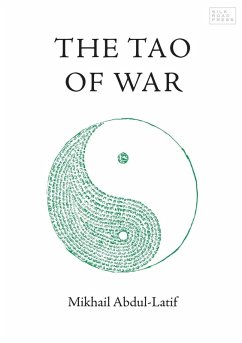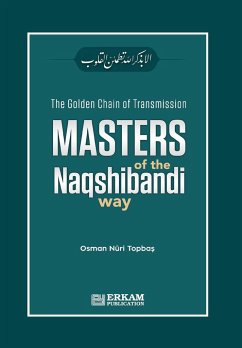
Reflections of Tasawwuf
Essays, Poems, and Narrative on Sufi Themes
Versandkostenfrei!
Versandfertig in 1-2 Wochen
16,99 €
inkl. MwSt.

PAYBACK Punkte
8 °P sammeln!
Sufism is the practice of remaining aware of the real presence of God in every circumstance, until Certainty is reached. The dizzying complexity of Sufi metaphysics, the passionate beauty of Sufi poetry, and the profound Sufi science of spiritual psychology, are all based on this. The Sufi Path is the process of spiritual transformation, ultimately resulting (God willing) in self-transcendence, produced by the Certainty of God's presence. In traditional Muslim society, many different moral, intellectual and spiritual functions were performed by those 'estates' responsible for maintaining them....
Sufism is the practice of remaining aware of the real presence of God in every circumstance, until Certainty is reached. The dizzying complexity of Sufi metaphysics, the passionate beauty of Sufi poetry, and the profound Sufi science of spiritual psychology, are all based on this. The Sufi Path is the process of spiritual transformation, ultimately resulting (God willing) in self-transcendence, produced by the Certainty of God's presence. In traditional Muslim society, many different moral, intellectual and spiritual functions were performed by those 'estates' responsible for maintaining them. Parents, imams and 'grammar school' teachers transmitted the fundamental ritual and moral principles of Islamic society. The madrasas took care of such traditional sciences as Qur'anic exegesis and the study of prophetic ahadith. The schools of fiqh maintained and applied the shari'ah. The mutakallimiin developed and taught kalam, Islamic 'scholastic theology'. The falasifa or philosophers carried on an intellectual tradition largely inherited from the Greeks. The ishraqiyyun developed a mystical theosophy based on direct spiritual insight. Physicians employed systems of healing derived in part from metaphysics. Poets often transmitted sophisticated spiritual lore; many other traditional craftsmen did the same. The mathematicians, astronomers and other scientists sought to uncover the Signs of God in numbers, in geometrical shapes, and in the heavens. And the alchemists worked on the reconstitution of the original human form (al-fitra) in psycho-physical terms. So when a seeker applied for admittance to a Sufi tariqa, he likely knew his Goal. The lower rungs of the ladder of moral, intellectual and spiritual aspiration were clearly defined and largely taken care of; consequently the aspirant to Sufi initiation could be more certain than he was seeking God Alone. In modern 'semi-Muslim' societies, however, things are not so clear. And as for those Sufi tariqas that have emigrated to the West, and the individuals who seek admittance to them, the situation is even more ambiguous. The traditional supports for a collective worldview that places God first and sees His hand in everything are no longer readily available, and no one whose worldview is basically secular can follow the Sufi path as the great Sufis of the past once did. In the secular West especially, Sufi tariqas lack the exoteric religious culture in relation to which they could be truly esoteric; without the Zahir, one might say, there can be no Batin. Therefore This book is not so much a text on Sufism itself as an attempt - woefully inadequate-to indicate certain elements of the original context that allowed Sufism to be what it is.












